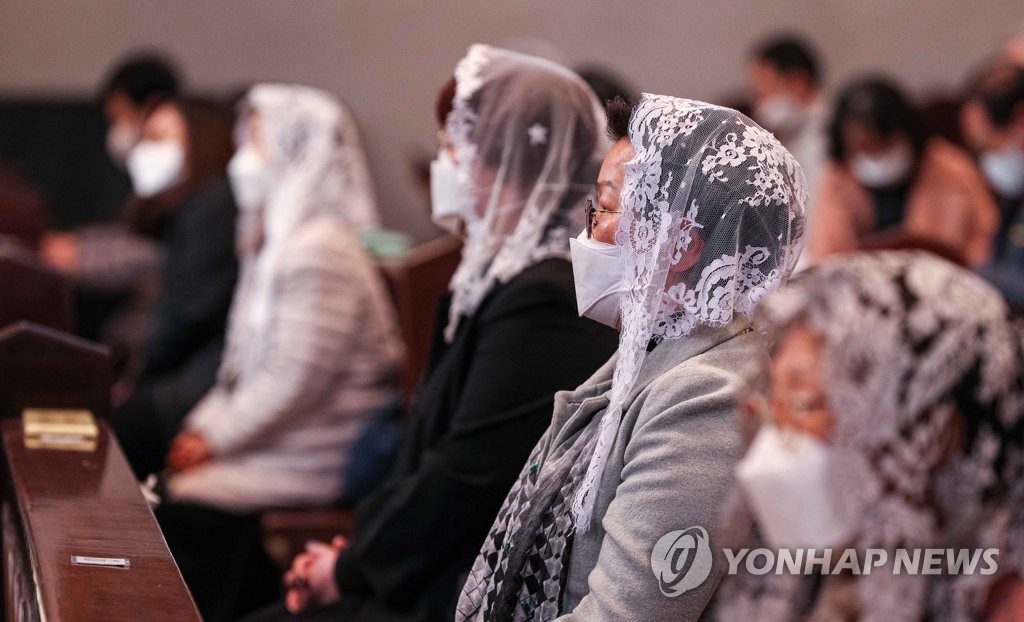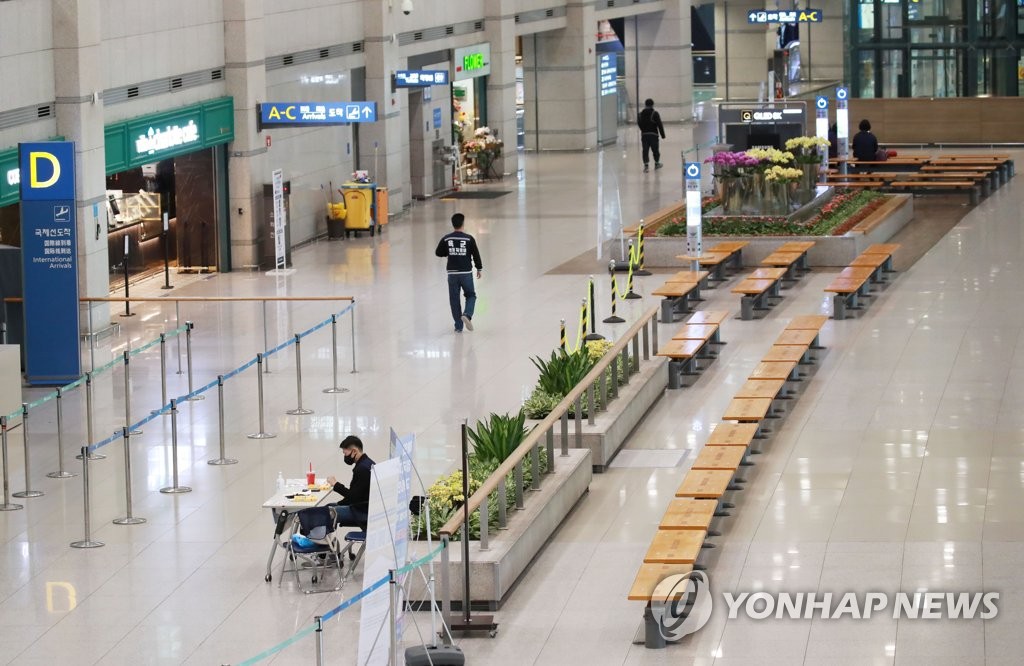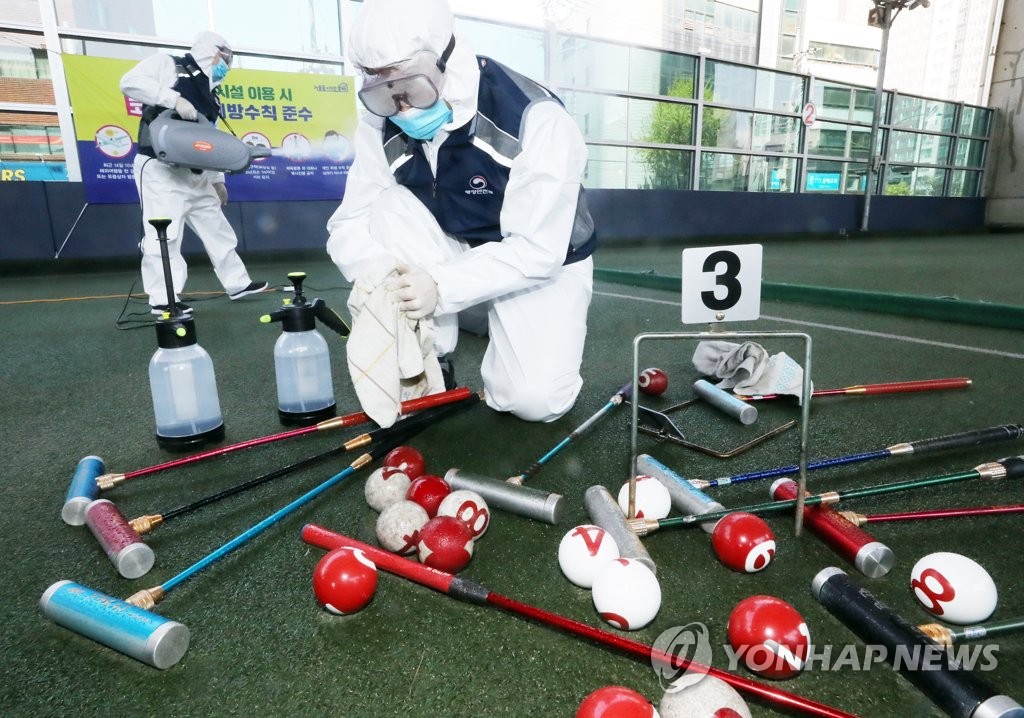- California Assembly OKs highest minimum wage in nation
- S. Korea unveils first graphic cigarette warnings
- US joins with South Korea, Japan in bid to deter North Korea
- LPGA golfer Chun In-gee finally back in action
- S. Korea won’t be top seed in final World Cup qualification round
- US men’s soccer misses 2nd straight Olympics
- US back on track in qualifying with 4-0 win over Guatemala
- High-intensity workout injuries spawn cottage industry
- CDC expands range of Zika mosquitoes into parts of Northeast
- Who knew? ‘The Walking Dead’ is helping families connect
With slowdown in new virus cases, S. Korea prepares for another potential wave
South Korea reported another single-digit number of new coronavirus cases Thursday, as the country’s strict social distancing campaign and enhanced quarantine measures have helped contain the spread of the virus.
The country added eight new virus cases, bringing the nation’s total infections to 10,702, according to the Korea Centers for Disease Control and Prevention (KCDC).
The figure marks a drastic drop from the Feb. 29 peak of 909 new cases. The country confirmed its first COVID-19 infection on Jan. 20.
Of the eight cases detected Wednesday, four were imported.



Followers attend Mass at a Catholic church in Seoul on April 23, 2020, after the Archdiocese of Seoul decided to resume gatherings after an almost two-month suspension due to the spread of the new coronavirus. (Yonhap)
The nation’s death toll from the coronavirus rose by two to 240, the authorities said.
The overall fatality rate reached 2.24 percent. The figure, however, reached 23.5 percent for patients in their 80s and above.
In total, 8,411 virus patients in South Korea have been discharged from hospitals, up 134 from a day earlier. The country has carried out tests on 583,971 people since Jan. 3.
The number of new infections continued to slow in Daegu, the nation’s worst virus-hit region that accounts for around 64 percent of the total cases, with just four additional cases.
North Gyeongsang Province, which surrounds Daegu, reported no new infections.
No new cases were reported from the capital city of Seoul as well.
In response to the falling number of patients reported here, health authorities said they plan to reduce the number of hospitals specially designated to treat COVID-19 across the country.
Some 67 hospitals with 7,500 beds in South Korea were designated to treat coronavirus patients.
The first batch of 12 hospitals without any COVID-19 patients will be removed from the list Wednesday, according to the authorities.
Given that the daily number of new cases remains below 50, South Korea said it will eventually keep around 1,500 to 2,300 beds for such patients across the country.
South Korea will also remain vigilant over the possibility of another major outbreak after summer later this year, they added.
“Experts say there may be another major pandemic during seasons when influenza is prevalent, as they both are caused by similar viruses,” Yoon Tae-ho, a senior health ministry official, said.
Yoon added South Korea should prepare for a long-term battle with the COVID-19 pandemic, as its population is not yet immune to the virus, without any vaccine or cure available at the moment.
Despite the looming signs of a slowdown locally, health authorities also remain wary of the rising number of imported cases.
The total number of cases coming in from abroad reached 1,021, with South Korean nationals taking up around 92 percent of such cases.
Over the past two weeks, imported cases, including those infected from such patients, accounted for more than 60 percent of newly added cases.
The figure accounts for nearly 10 percent of the total confirmed cases.
With its monthlong social distancing drive, South Korea avoided the worst scenario despite being one of the first countries hit hard by the virus that originated from China.
While health authorities remain wary of another wave of COVID-19 infections, the country is slowly moving to lift some of its social distancing regulations this week, giving the go-ahead for some facilities, including gyms.
The country, however, said overall social distancing is still in force until May 5, and it is considering moving toward “everyday life quarantine” after the date if the number of cases continues to plateau.
“The COVID-19 virus is showing different traits compared to similar diseases in the past, including SARS or MERS, as it is more contagious and people without any symptoms can still spread the disease,” KCDC Deputy Director Kwon Joon-wook said during a daily briefing.
Kwon added that studies showed smokers and obese people are more likely to be infected with the virus, urging South Koreans to be more cautious about their health in their everyday lives.
South Korea said it plans to run clinical tests on plasma-based medications possibly in late July. The treatment involves utilizing antibody-rich plasma from those who have recovered from the novel coronavirus.
Plasma, usually yellow, is the liquid portion of blood that remains after blood cells and platelets are removed.












